
Keeping chickens is a lot of fun, but when you first start off, it can be so nerve-wracking. If you’re a nervous beginner, one of the best things you can do is read up on all the most common chicken keeping mistakes, so you can be sure not to make them too.
There’s so much to learn, and unlike most pets, these animals live outside year-round and come with their own set of rules.
These common chicken keeping mistakes are easy to avoid and will help to keep your chicken flock happy, healthy, and producing tons of delicious eggs.
10 Chicken Keeping Mistakes
1. Not fencing in the garden
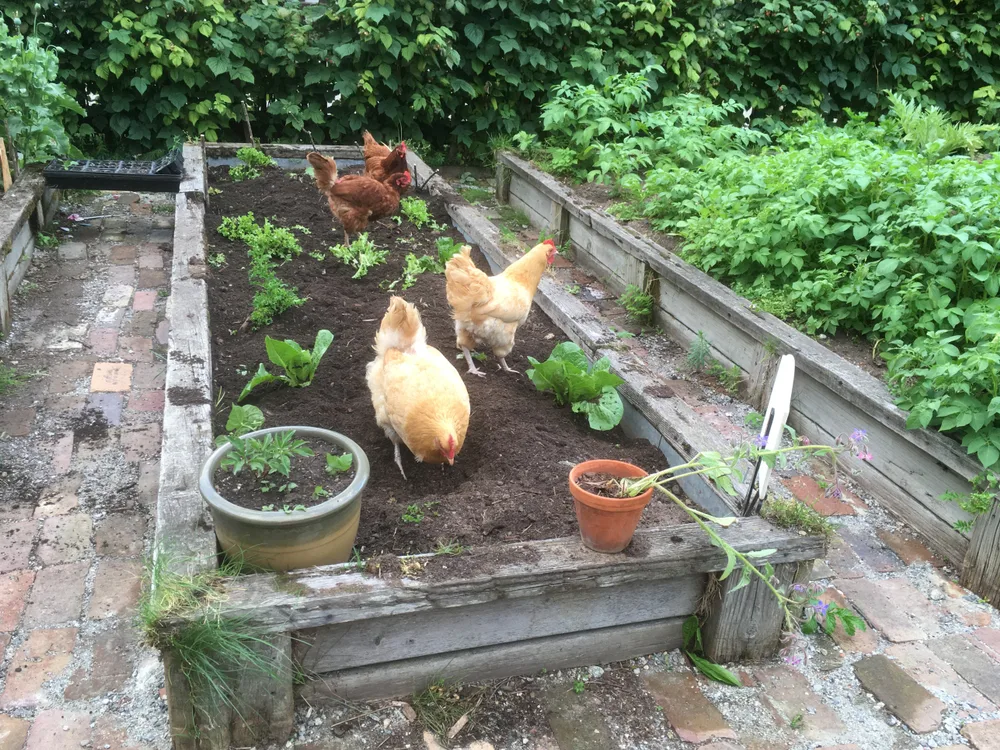
It’s no secret, chickens just love destroying gardens. Whether they’re eating every strawberry in the entire patch, or kicking the mulch we spent all Saturday spreading in the flower beds across the entire the yard, these birds are bent on plant destruction.
The only way to keep the chickens out of the garden is with a good, tall fence. It only takes an afternoon for a free-range flock to destroy a whole season of hard garden work. Take the time to keep them out of the garden and you’ll all be happier for it.
Once you’ve got your garden locked down, consider planting a garden just for your flock.
2. Not ensuring the coop is predator proof
Predator attacks are one of the most frustrating and heartbreaking aspects of raising chickens, and predators can strike at any moment, in any place. No matter where you live, you’ll have predators after your chickens, both day and night.
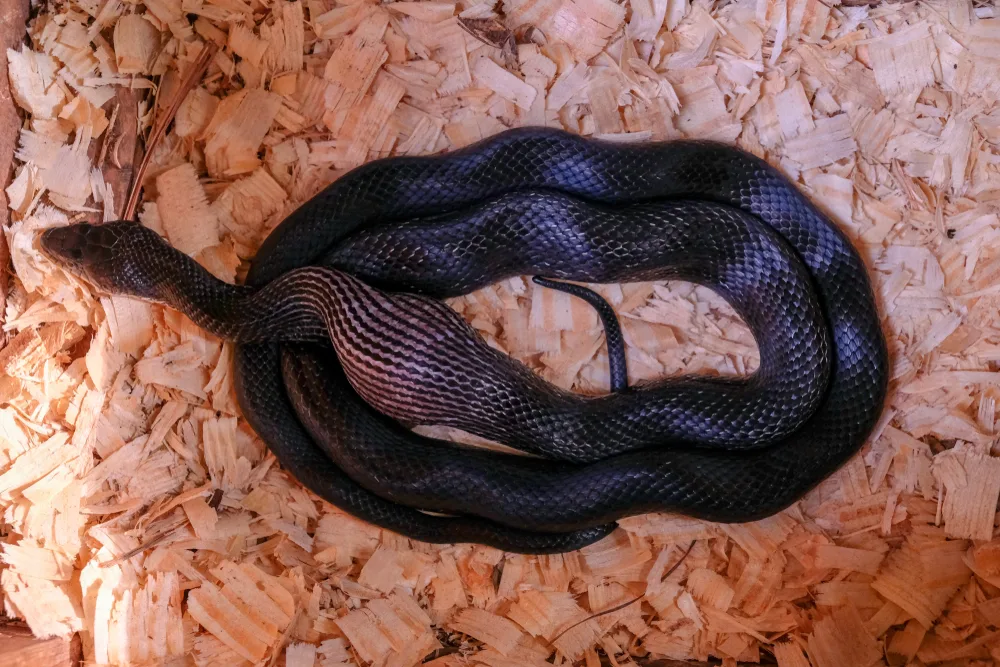
The best way to ward them off is to build your chicken coop like a fortress, considering every angle a predator might get through, and securing it completely.
Some predator proofing tips:
- Use hardware cloth instead of chicken wire, the smaller openings keep out tiny predators like weasels.
- Make the effort to close up every crack bigger than the diameter of your thumb. Weasels and rats can squeeze through extraordinarily tiny spaces.
- Make absolutely sure all doors and windows are closed and latched every night.
- Don’t forget the roof on the chicken run. Predators can get into your coop from above too.
- Lay down hardware cloth on the bottom of the chicken run to keep out digging predators. Do this in the coop only if you have dirt floors.
3. Feeding the wrong foods
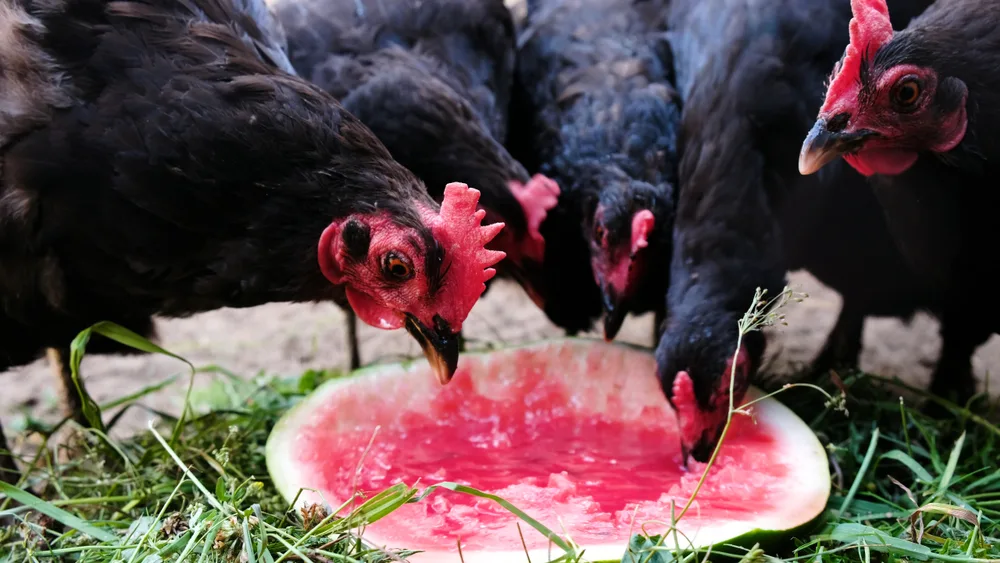
Chickens are omnivores, which means they enjoy many different types of foods, including vegetables, fruits, meat, and dairy.
While chickens have a wide range of foods they enjoy, some foods are downright bad for them and will make them ill or even kill them.
It’s good to know what these foods are before you start raising chickens, so you don’t mistakenly feed them something you shouldn’t.
Bad foods for chickens:
- Sweets – candy, chocolate, desserts
- Leaves from tomato plants, potato plants, and rhubarb
- Citrus fruits
- Onions
- Caffeine or alcohol
- Fried foods
- Uncooked beans, pasta, or rice
- Junk food and highly processed foods
4. Using the wrong bedding/litter
This tends to start when the chickens are wee little chicks. It’s tempting to use whatever you have lying around as bedding in the brooder box but the wrong bedding can not only be messier, it can also cause irreparable damage to your chickens.
The brooder box should never be lined with flat newspaper. Not only is this not absorbent, it’s too slippery for chicks feet. When they can’t get traction their legs splay out which can cause permanent deformities such as spraddle leg. Shredded newspaper is not much better as it’s still not very absorbent.
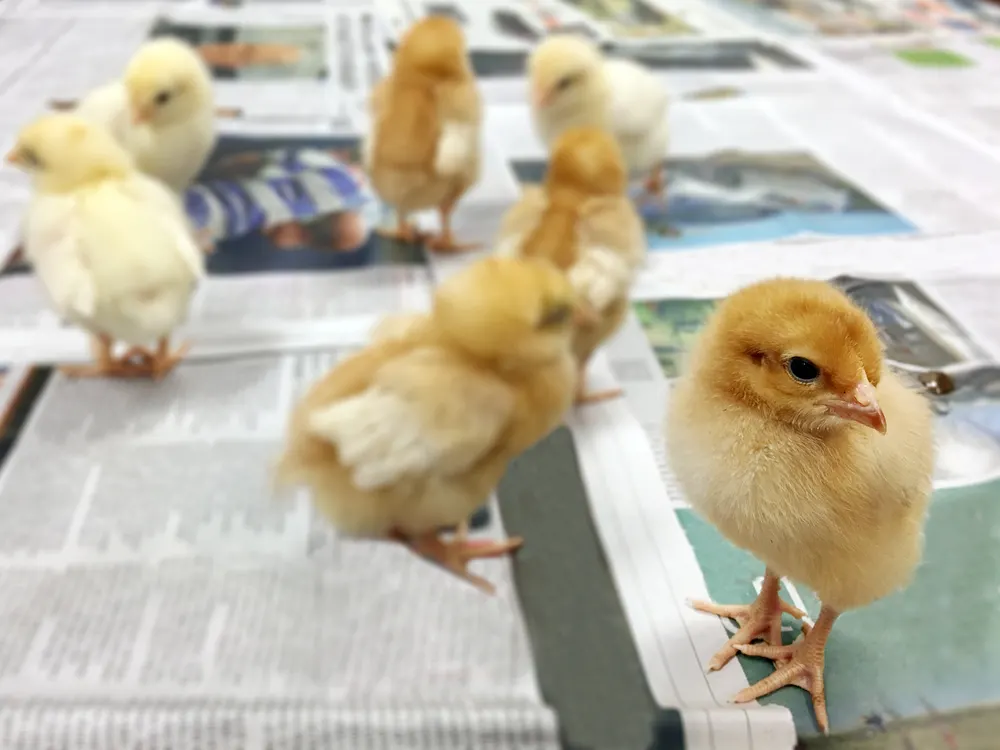
Another big no-no is to use cedar bedding for chickens, whether they’re chicks or adults. Cedar is an aromatic wood and constant exposure can cause respiratory issues for your flock.
So what bedding should you use in the chick brooder?
Paper towel works great when the chicks are only a few days old and still learning what’s food and what’s not food. When the chicks are a few weeks old it’s fine to switch to pine shavings, which are very absorbent and easy to clean.
5. Not counting your chickens each night
If you like to free-range your flock every day, it’s essential that you take the time to count them when they put themselves to bed each evening.
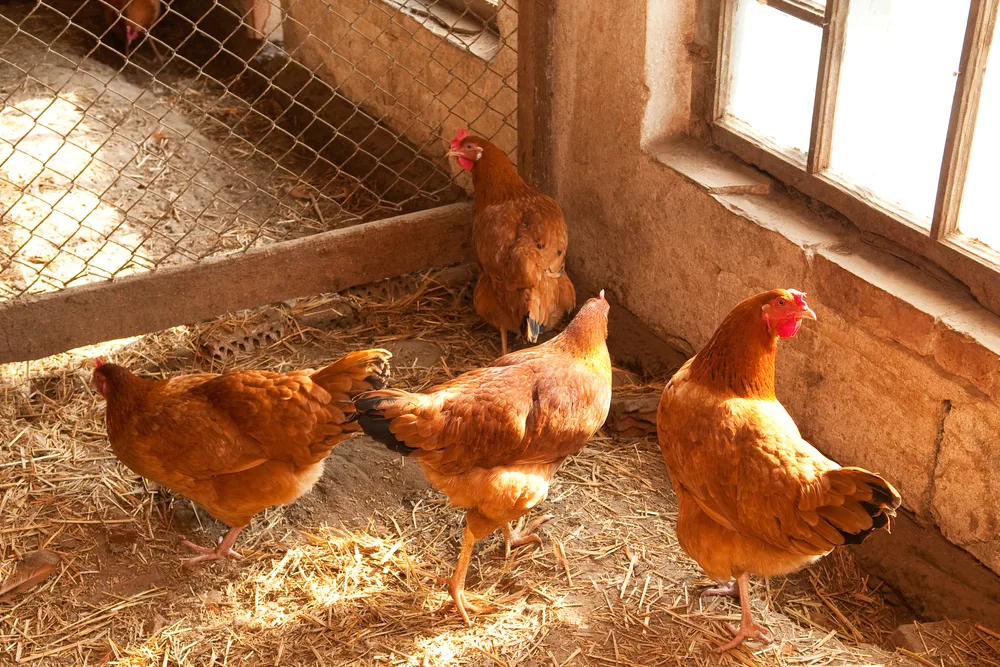
Free-ranging is beneficial for your chickens in more ways than one, but it can also be dangerous as it makes it easier for predators to attack your flock.
A quick evening count will instantly alert you to any missing members of your flock so you can search for them before nightfall.
6. Putting a heat lamp in the chicken coop
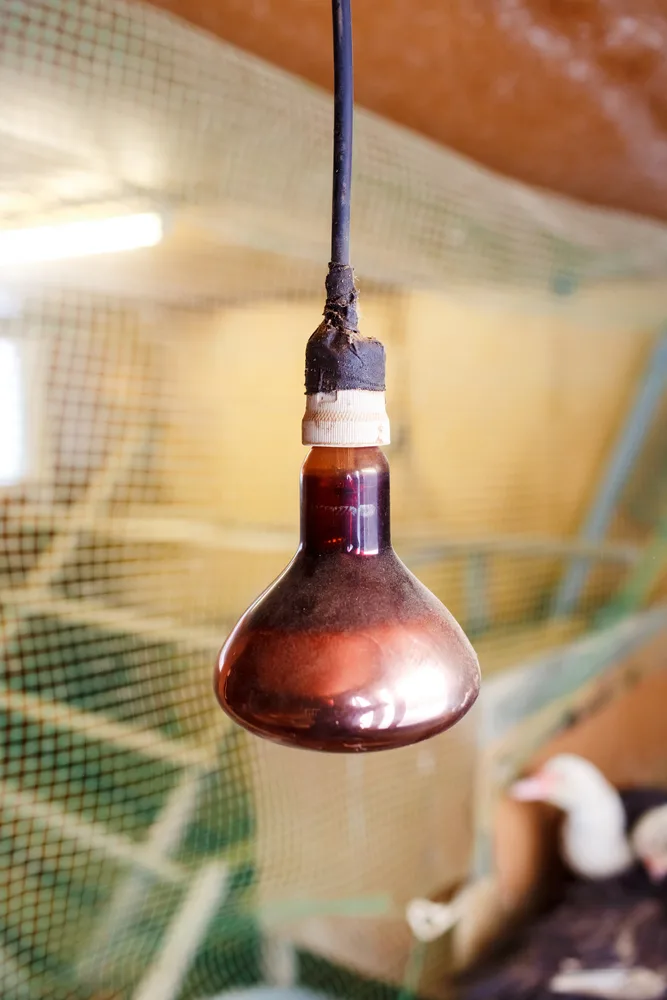
You wouldn’t think this would be on a list of chicken keeping mistakes, as it seems like a good idea. However, heat lamps are notoriously dangerous in the chicken coop. Every year they cause coop fires that destroy property and kill flocks.
Heat lamps are not easy to safely secure and are likely to fall into dry bedding, especially when bumped by flying chickens.
Heating the coop is almost never necessary as chickens have built in protection from the cold. If, however, you feel you must provide heat, call a professional to install safe heating for your building.
7. Not providing protection during free-range time
Chickens are most vulnerable to predators while they’re free-ranging, as they don’t have the protection of the coop and chicken run around them. Predators can come in all shapes and sizes, and attack without warning.
Follow these tips to protect your flock during free-range time:
- Stay in the yard with them.
- Limit free-range time to a few hours a day – You can do this by letting the chickens out in the late afternoon, then they’ll put themselves to bed at dusk.
- Get a dog – The smell and sounds of a dog on your property is enough to deter many predators, and well-trained dogs can even stay outside with your chickens and protect them from predators.
- Put in a fence – Having a strong fence around your property is not guaranteed protection from all predators but it will cut down on unwanted visits from coyotes, foxes, and stray dogs.
- Get a rooster – Roosters make it their job to constantly keep an eye out for predators so they can protect their flock. A good rooster is worth his weight in gold.
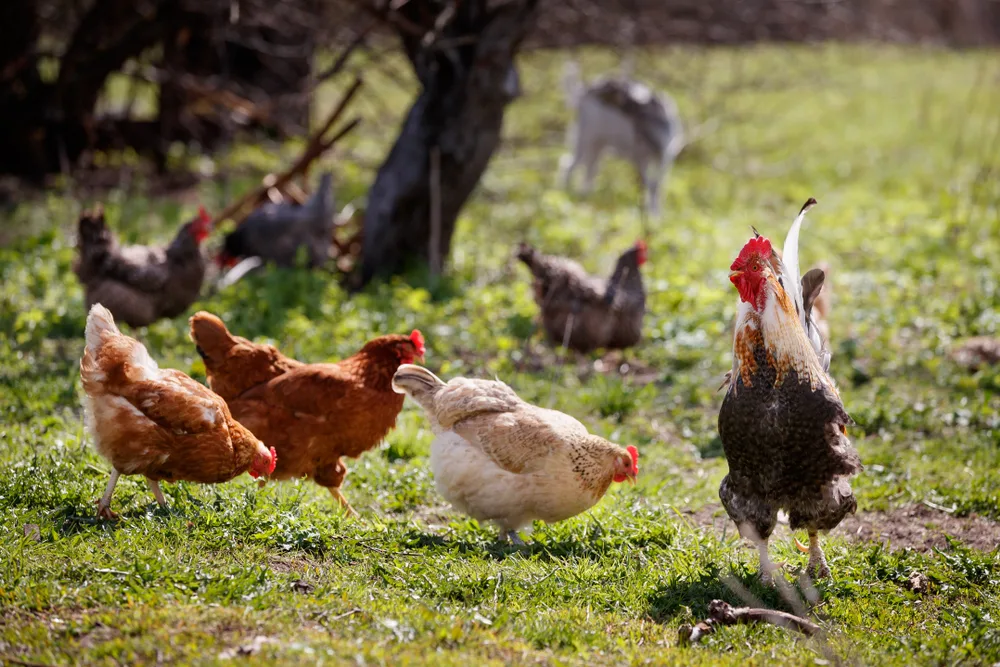
8. Starting with the wrong size coop
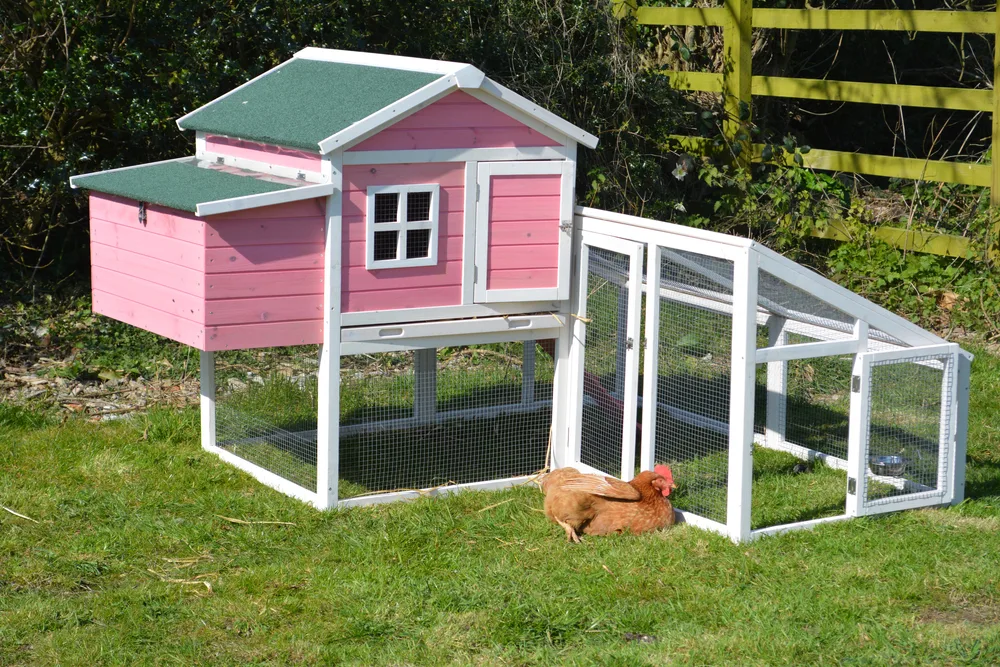
Those cute tiny chicken coops you’ll find at farm and country stores are certainly adorable, but almost never practical for backyard chicken keepers.
Tiny coops are more likely to blow over in the wind, easier for predators to access, usually not weather proof, and likely not big enough for your needs.
Even if you plan to start with only two or three chickens, buy a coop that will fit more than that. Every chicken keeper will tell you raising chickens is addicting, and you’ll find yourself wanting more and more chickens. Start off with room for more and you can’t go wrong.
Building your own coop or ordering one that’s large and predator-proof is always a better choice, so you know you’re starting off right.
9. Keeping the chick brooder too cool or too hot
This is a classic mistake most first-time chicken keepers make when they bring home that first basket of fluffy chicks.
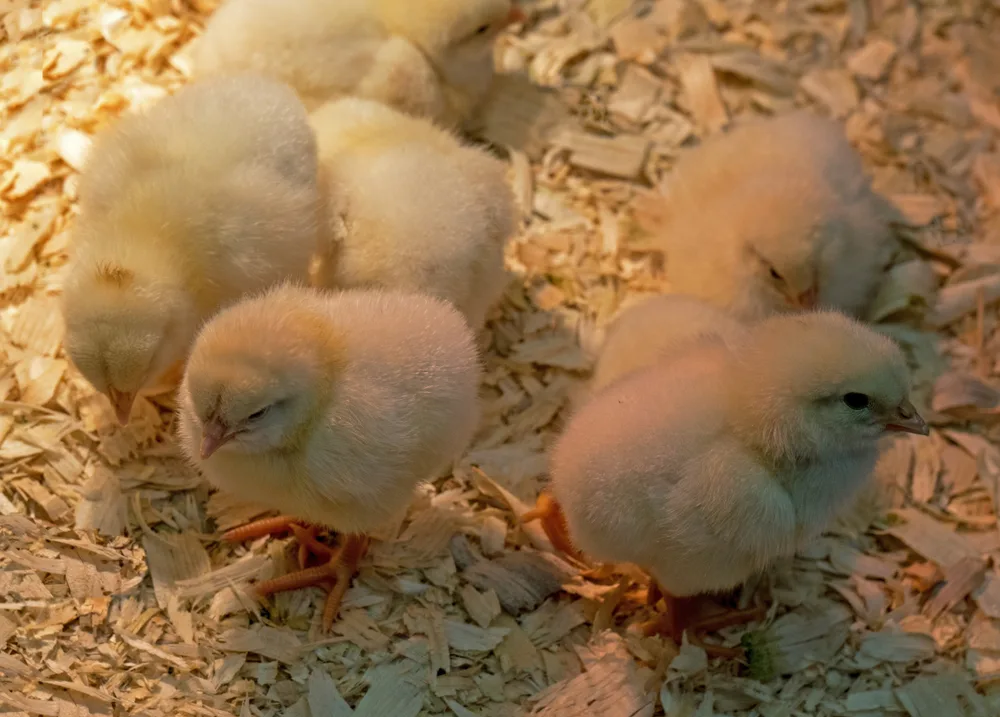
Beware that keeping the brooder too cool or too hot will mean disaster for your young chicks. Either temperature extreme can cause irreparable damage to their fragile bodies and brains.
The chick brooder should be around 95F (35C) to keep the chicks happy and healthy. Be sure to check the temperature regularly, and adjust your heat source as needed. You can monitor the temperature in the brooder easily using an infrared thermometer, and for a bonus, the chicks love chasing that little laser light around the brooder.
Still worried about temperatures?
Pay close attention to your chicks behavior, they’ll let you know if they’re too cold or too hot. Chicks that are too cold huddle together constantly and peep loudly. Chicks that are too hot hold their wings away from their bodies, pant, and sleep spread out in the brooder.
10. Not preparing properly for weather extremes
As far as farm animals go, chickens are quite hardy, and most will easily adapt to the changing seasons. However, temperature extremes, either too cold or too hot, will negatively impact your flock if you’re not careful and prepared. It pays to take some steps before the heat of summer and cold of winter hit so you and your chickens can get through comfortably.
In winter – Make sure to winterize your chicken coop before the temperatures drop so it provides ample protection from snow, wind, and cold. Add extra bedding and hang horse blankets in the coop for added insulation in the winter. Feed warming treats like hot oatmeal on super cold days. Watch for signs of hypothermia and frostbite in your flock, and take action quickly if you notice them.
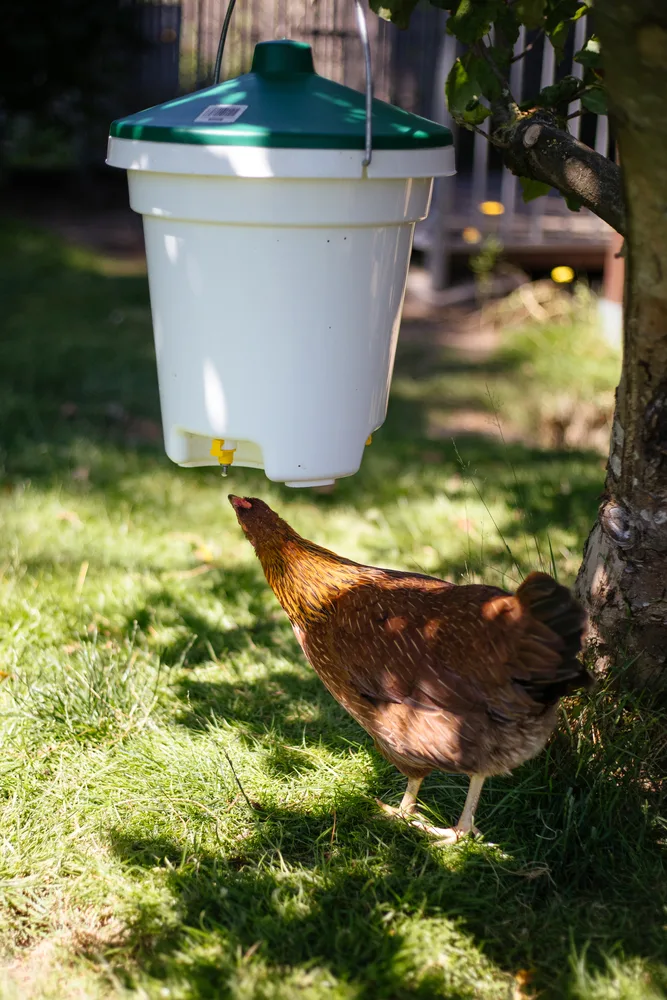
In summer: Make sure fresh, cool water is available to your flock at all times. Provide frozen fruit and vegetables during a heatwave for a cool treat. Give your flock a chance to get out of the sun by letting them free-range, they’ll naturally find the coolest parts of your yard during the heat of the day.
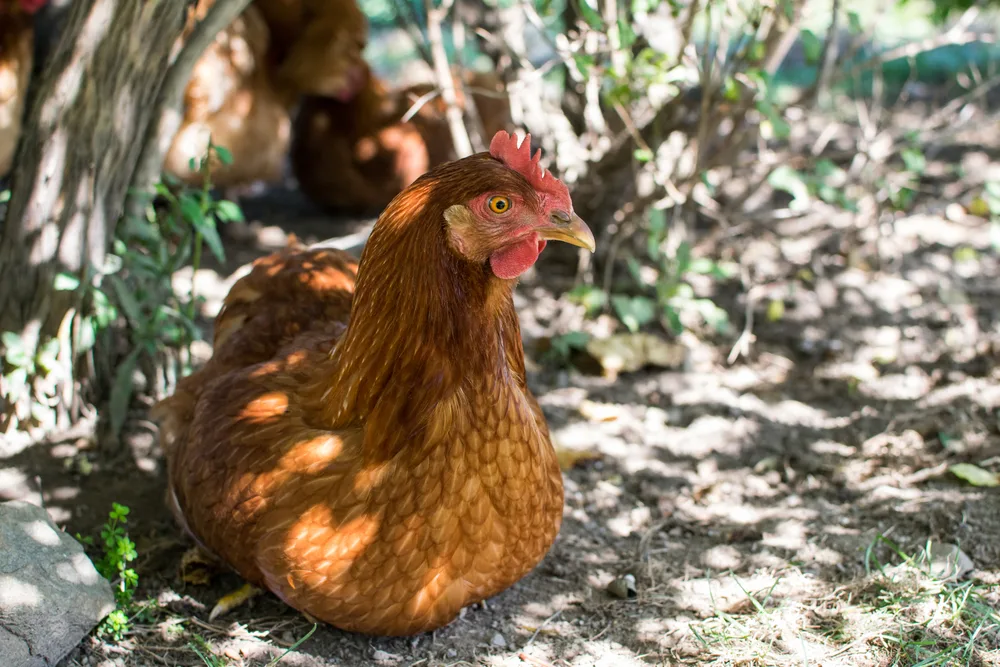
Raising chickens is great fun, and having pets with egg-producing benefits is a blast. Now that you know what chicken keeping mistakes to avoid, you can enjoy your flock even more.
And remember, raising chickens doesn’t have to cost you an arm and a leg.
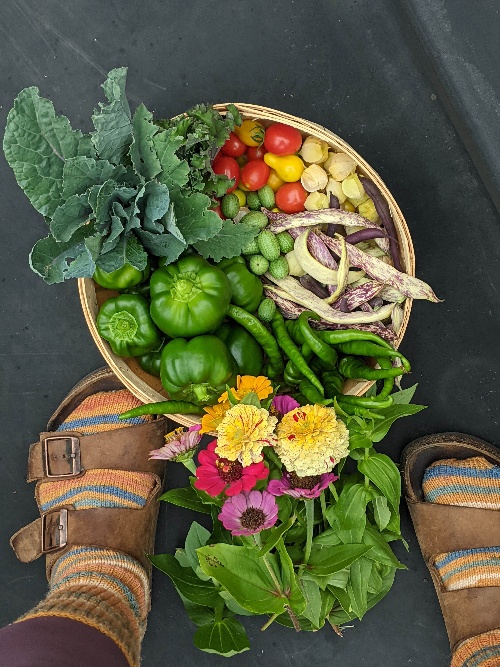
Get the famous Rural Sprout newsletter delivered to your inbox.
Including Sunday musings from our editor, Tracey, as well as “What’s Up Wednesday” our roundup of what’s in season and new article updates and alerts.

